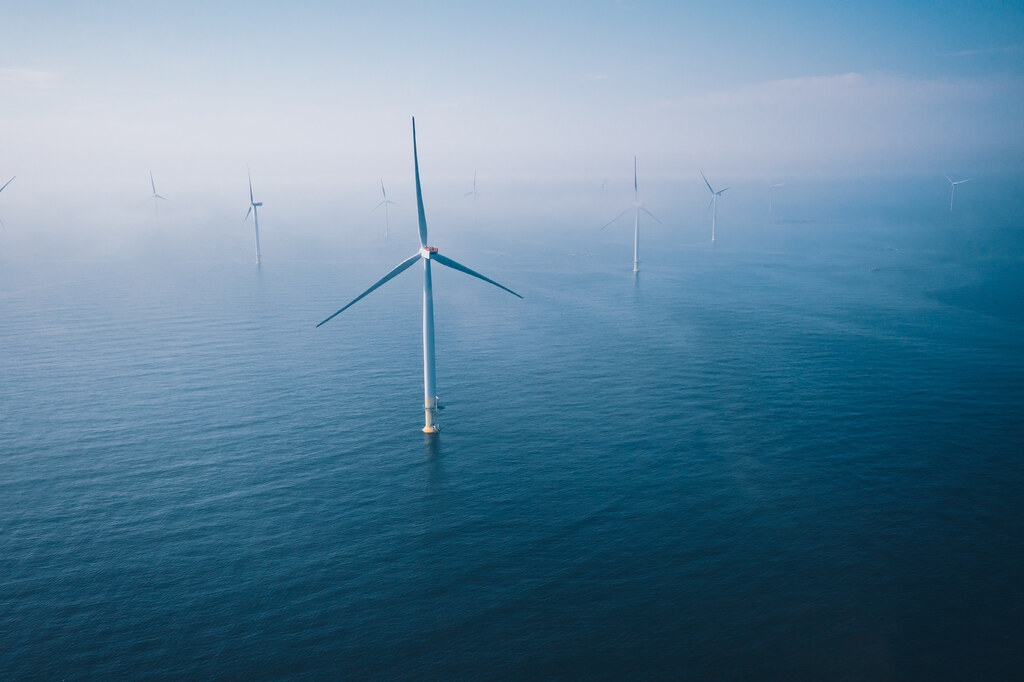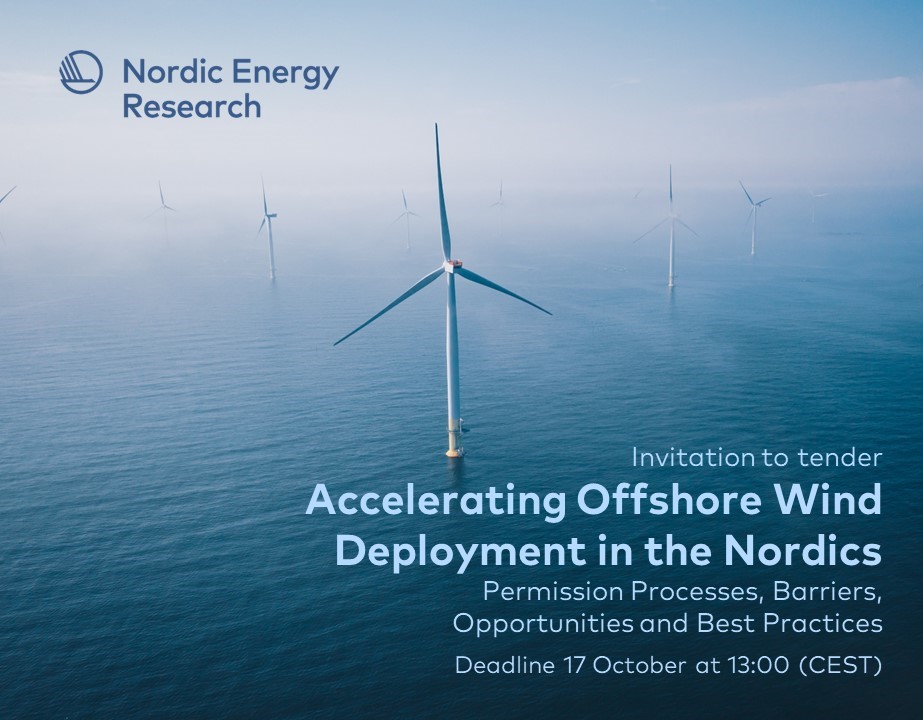
Invitation to tender: Accelerating Offshore Wind Deployment in the Nordics
Nordic Energy Research invites applicants to submit their proposals for the tender "Accelerating Offshore Wind Deployment in the Nordics: A Study on Permission Processes, Barriers, Opportunities and Best Practices". The…
Nordic Energy Research invites applicants to submit their proposals for the tender “Accelerating Offshore Wind Deployment in the Nordics: A Study on Permission Processes, Barriers, Opportunities and Best Practices”. The study will specifically focus on challenges related to permitting processes, identify barriers, explore opportunities, and gather best practices to expedite the deployment of offshore wind energy in the region. The main goal of the study is to collect and analyse information that can be shared with government officials, energy companies, industry actors, academia, and civil society.
Deadline for applications is 17 October 2024.
Read more apply for the tender on TED or on Mercell.

Background and financial framework
The results of Nordic Energy Research reports Accommodating Biodiversity in Nordic Offshore Wind Projects (2022) and Coexistence and nature-inclusive design in Nordic offshore wind farms (2023), emphasised the enormous potential for offshore wind in the North Sea and the Baltic Sea, as well as the pressing challenges associated with biodiversity conservation and marine spatial planning. Also, the Nordic energy ministers’ meeting on 18 October 2023 placed a spotlight on the imperative of energy security amidst the ongoing energy crisis. A key strategy for bolstering energy security in the Nordic region involves expediting the deployment of offshore wind energy.
One of the pivotal challenges, which has garnered increasing political focus in the Nordic region, pertains to the permitting processes for offshore wind turbine deployment, particularly within the ambit of environmental regulations and the issue of coexistence with installations or areas of interest, e.g. national defense, fishing, tourism etc. The mitigation and implementation of measures to avert potential environmental and biodiversity harm are largely governed by EU environmental laws. Public backing is essential for the successful advancement of these initiatives. Therefore, the study will map permitting processes and potential barriers at local, national, and EU level. This entails a thorough review of how EU legislation, such as environmental impact assessment directives and biodiversity directives, is implemented and interpreted differently across the Nordic countries. Additionally, the project will analyse how permitting processes can be expedited by examining best practices from other European countries, such as Germany, the United Kingdom, and the Netherlands, which have successfully accelerated offshore wind development.
The study will also assess the status of data and knowledge exchange between the Nordic countries in order to enable faster processes. This may include insights from related projects, such as NordicSpatial, to improve existing frameworks as well as enhance the efficiency of offshore wind implementation. A key part of the assignment is to develop a catalogue of recommendations and best practices for how permitting processes can be accelerated in the Nordic region, with these recommendations being directed at decision-makers at the Nordic level.
The contract value for the project is limited to NOK 1 360 000, excluding VAT. The contract will be awarded to the supplier offering the most advantageous combination of quality, price, and relevant expertise.
